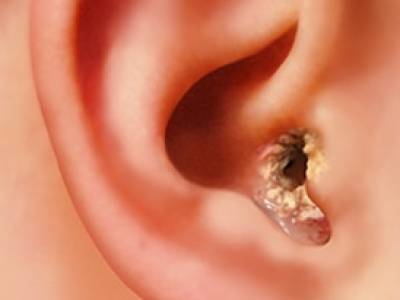
≡
Roughly one in 10 people will experience swimmer’s ear during their lifetime, according to a study in the American Family Physician magazine. Despite what the name implies, you don't have to be an avid swimmer to get swimmer’s ear. In fact, you don’t have to spend any time swimming to get the infection.

The formal name for swimmer’s ear is otitis externa - an inflammation of the outer ear. The “outer ear,” is the visible appendage on the side of the head and the first part of the ear canal. The inflammation is usually caused by some kind of bacterial infection. Additionally, fungus, viruses and even allergies can all cause swimmer’s ear, but 98 percent of all cases stem from a bacterial infection.
When water gets trapped in the ear, the moisture creates an environment that allows infection-causing bacteria to multiply, make their way into the skin of the ear canal and cause an infection. It’s called “swimmer’s ear” because the types of bacteria that cause it like to live in freshwater, but swimming in the sea, lakes, rivers, ponds or pools are all major risk factors for contracting the condition.
The ear’s ability to trap and hold water increases the odds that bacteria will have time to work their way into skin abrasions. Also, not much blood circulates through the ears and so “the body can’t get as many infectionfighting cells to that area.” Especially for those with diabetes or pre-diabetes - conditions that can lead to the death of small blood vessels in and around the ear and other extremities - swimmer’s ear is a bigger threat.
Swimmer's ear symptoms to watch out for:
If you have a mild case of swimmer’s ear, acidic ear drops will help stabilize the bacterial environment inside the ear. Steroids and antibiotic drops will also help reduce inflammation and irritation.